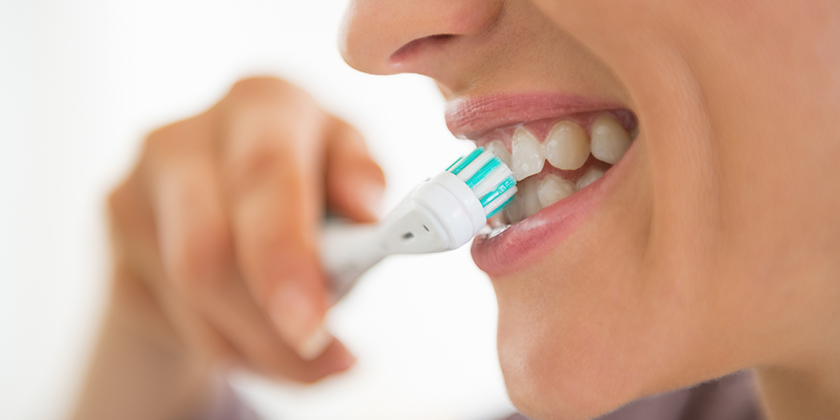Brushing your teeth is one of the cornerstones of good oral health. Overbrushing your teeth, however, can harm your gums and teeth, reversing any benefits that you can get from this important process. There are three ways that someone can overbrush their teeth and we will explain each one of them to you.
Brushing for Too Long
It sounds logical that the longer you brush your teeth the cleaner they will be. While this might be true, it is not necessary when it comes to brushing teeth. The American Dental Association recommends that teeth brushing should take no more than two or three minutes. The best way to work out the optimum time spent brushing is to count 30-45 seconds on each quadrant of your mouth. The association asserts that this is enough time to remove all food debris, plaque and bacteria from your mouth.
Brushing Many Times
Experts recommend that an individual should brush his or her teeth no more than twice a day. Many people, however, brush their teeth more times than this in order to refresh their mouths or because they believe that the more, they brush their teeth, the cleaner they will be. While this is not harmful when done occasionally, it can cause adverse effects if done over a long period of time. Experts recommend brushing in the morning when you wake up and again in the evening when you go to sleep.
Brushing Too Aggressively
One may brush teeth aggressively and this often has the same effects as brushing too long or too often. Experts recommend applying soft pressure which is enough to clean your teeth. What are the effects of overbrushing teeth?
Effects of Overbrushing
Overbrushing affects your teeth by wearing down the protective enamel cover. This, in turn, causes the teeth to become brittle and raise the possibility of cavities and sensitivity. Keep in mind that you can’t replace enamel. Once it is worn down, it is gone forever. When you overbrush your teeth in one or several of the ways we have described, you also push back your gums leading to sensitivity and increasing chances of gum disease.
The Right Way to Do it
Apart from the suggestions given above, you should also ensure that you do not use a medium or hard brush when cleaning your teeth. Soft brushes will just as easily get the job done without ruining your enamel or gums. This is unless your dentist has specifically advised you to use a different kind of toothbrush other than a soft one. You should also hold the brush at a 45-degree angle to the gum line at all times and move the brush with short strokes in a circular motion. Finally, ensure that you floss frequently to remove any debris that may be stuck between your teeth.
Part of good oral care also involves periodic checkups by your dentist. If you are looking for a highly experienced dental practice to have your dental exams done, Dr. Alex Rubinov can help. Dr. Rubinov is a highly experienced dental practitioner based in New York City. Contact us at (718) 253-0800 for an appointment.


